Wednesday, Nov. 10
@ 3:30pm - 5pm
Conference Opening: Preview and Opening Plenary with Drs. Daniel Wendler and Kyler Shumway
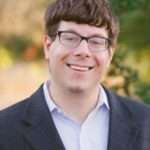
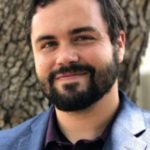 Drs. Wendler and Shumway share the story of how friendship helped them overcome their painful history of loneliness, bullying and autism. Drawing on insights from their own neurodiverse friendship as well as their training in clinical psychology, they explore the obstacles that hold people back from connection and provide practical strategies for making friends and escaping loneliness. They offer real hope that anyone, whether autistic or not, can find a place to belong and live a life full of connection.
Drs. Wendler and Shumway share the story of how friendship helped them overcome their painful history of loneliness, bullying and autism. Drawing on insights from their own neurodiverse friendship as well as their training in clinical psychology, they explore the obstacles that hold people back from connection and provide practical strategies for making friends and escaping loneliness. They offer real hope that anyone, whether autistic or not, can find a place to belong and live a life full of connection.
Daniel Wendler is the author of the books Improve Your Social Skills and Level Up Your Social Life as well as the website ImproveYourSocialSkills.com. Wendler’s commitment to help others find social success was born from his own search for connection. With Wendler’s quirky personality and awkward behavior, his childhood was full of rejection, bullying, and loneliness. After he was diagnosed with Asperger’s Syndrome, Wendler began teaching himself social skills from the ground up. He discovered he was not alone in his search for connection, and that the best way to find a place to belong was to create that place for someone else. Today, he is an author, speaker, and has a doctorate in clinical psychology from George Fox University.
Dr Kyler Shumway is a Doctor of Clinical Psychology, two-time author and an advocate for the autism community. His passion for friendship and human connection prompted his authorship of “The Friendship Forumula”, a book dedicated to helping kids and adult learn to find a place of belonging by learning how to be a friend. Dr Shumway is a therapist at Deep Eddy Psychotherapy in Austin, TX.
Wednesday, Nov. 17
Wednesday, Nov. 17, @ 8 am – 9:15 am, Conference Opens and KEYNOTE | Steve Silberman
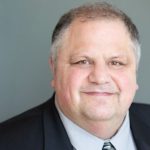 Steve Silberman will deliver the message of NeuroTribes: The Legacy of Autism and the Future of Neurodiversity, his groundbreaking book that upended conventional thinking about autism and suggests a broader model for acceptance, understanding, and full participation in society for people who think differently. He will share little-known stories of the parents who fought for all children’s right to an education, and the adults on the spectrum who organized to demand respect and a place at the table when policy that affects autistic people and their families is set. Steve will speak to the need to build a more humane world by 2030 in which people with learning differences and those who love them will have access to the resources they need to live happier, healthier, more secure, and more meaningful lives.
Steve Silberman will deliver the message of NeuroTribes: The Legacy of Autism and the Future of Neurodiversity, his groundbreaking book that upended conventional thinking about autism and suggests a broader model for acceptance, understanding, and full participation in society for people who think differently. He will share little-known stories of the parents who fought for all children’s right to an education, and the adults on the spectrum who organized to demand respect and a place at the table when policy that affects autistic people and their families is set. Steve will speak to the need to build a more humane world by 2030 in which people with learning differences and those who love them will have access to the resources they need to live happier, healthier, more secure, and more meaningful lives.
Steve Silberman is the author of Neurotribes: The Legacy of Autism and The Future of Neurodiversity, a groundbreaking book that upends conventional thinking about autism and suggests a broader model for acceptance, understanding, and full participation in society for people who think differently.
@ 9:30 - 10:30 am
WORKSHOP #1
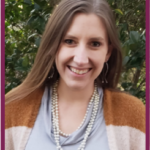 Our goal is success for the autistic people in our lives: in their education, their relationships, their careers, their happiness. In our efforts to prevent autistic people from failing in this world, we have ignored the ways the world is failing them. An acceptance of differences and a focus on accessibility can make all the difference. We will focus on the importance of adapting instructional approaches, educational support styles, and social-emotional interventions with the autistic neurology in mind to create a culture of acceptance, connection, belonging, and success.
Our goal is success for the autistic people in our lives: in their education, their relationships, their careers, their happiness. In our efforts to prevent autistic people from failing in this world, we have ignored the ways the world is failing them. An acceptance of differences and a focus on accessibility can make all the difference. We will focus on the importance of adapting instructional approaches, educational support styles, and social-emotional interventions with the autistic neurology in mind to create a culture of acceptance, connection, belonging, and success.
McAlister Greiner Huynh is a special educator in Raleigh, N.C. She has been working with and learning from autistic individuals professionally for 10 years. She is a Nationally Board Certified Exceptional Needs Specialist. McAlister is the educator behind “The Neurodivergent Teacher” pages on Facebook and Instagram, where she connects with families, professionals, and neurodivergent folks across the globe to share philosophies around teaching, self-advocacy skills, accessibility, and coping strategies.
WORKSHOP #2
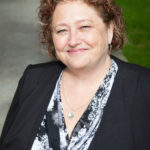 We will explore different paths our loved ones can take on their journey to a Whole Life. We will start dreaming about what a Whole Life could look like for your son or daughter who experiences disabilities. This workshop will help you focus on one individual, their interest, goals, what works for them and identify what accommodations may be helpful.
We will explore different paths our loved ones can take on their journey to a Whole Life. We will start dreaming about what a Whole Life could look like for your son or daughter who experiences disabilities. This workshop will help you focus on one individual, their interest, goals, what works for them and identify what accommodations may be helpful.
Darla Helt is the Coordinator of the Clark County Parent Coalition. She has a certificate in Leadership for Developmental Disabilities and is currently working on a Bachelors of Science. She relies on 21 years of experience in the field along with extensive training in cross-system navigation, Autism spectrum disorders, mediation/negotiation skills, and emotional supports. Darla is mother to her three sons, two of which experience developmental disabilities and are her motivating force and greatest teachers.
@ 10:45 - 11:45 am
WORKSHOP #1
 This workshop provides practical tips and tools that educators can use in the classroom related to the concepts advanced in the 9:30 am Overview workshop. Come to learn the answer to: So, how do I implement this in my classroom?
This workshop provides practical tips and tools that educators can use in the classroom related to the concepts advanced in the 9:30 am Overview workshop. Come to learn the answer to: So, how do I implement this in my classroom?
McAlister Greiner Huynh is a special educator in Raleigh, N.C. She has been working with and learning from autistic individuals professionally for 10 years. She is a Nationally Board Certified Exceptional Needs Specialist. McAlister is the educator behind “The Neurodivergent Teacher” pages on Facebook and Instagram, where she connects with families, professionals, and neurodivergent folks across the globe to share philosophies around teaching, self-advocacy skills, accessibility, and coping strategies.
WORKSHOP #2
 You will hear important calls to action to the Autistic Community: (1) Impacts of anti-Blackness and racism on Black, Brown and Indigenous Autistic Folks both in and outside of the Autistic Community; (2) Share in a radical imaginary of what a vision of Disability Justice could be in our community and society at large, and (3) Outline critical next steps all member of the Autistic Community can take for resolution and repair internally, and transformative change in our collective fight for equity and racial justice.
You will hear important calls to action to the Autistic Community: (1) Impacts of anti-Blackness and racism on Black, Brown and Indigenous Autistic Folks both in and outside of the Autistic Community; (2) Share in a radical imaginary of what a vision of Disability Justice could be in our community and society at large, and (3) Outline critical next steps all member of the Autistic Community can take for resolution and repair internally, and transformative change in our collective fight for equity and racial justice.
ChrisTiana ObeySumner is a social equity consultant, educator, advocate and autistic. They joyfully approach change management and organizing by combining scholarship of historical social justice foundations; contemporary analysis of 21st century social consciousness; critical analysis and forecasting of social trends; and lived experience as an intersectional professional and academic.
ChrisTiana believes our history will predict our future; finding it an invaluable tool to understand from where we’ve come and where we are going.
@ 12:00pm - 1:00 pm
LUNCH
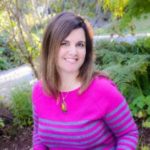
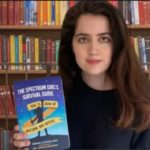 Siena and Marcelle will explore how stereotypes and general misconceptions promote autism as a male condition; and the lack of recognition of female presentation of autism among the general public, pop culture, and in educational, clinical, and forensic settings. Despite this reality, together we can move toward autism gender equality.
Siena and Marcelle will explore how stereotypes and general misconceptions promote autism as a male condition; and the lack of recognition of female presentation of autism among the general public, pop culture, and in educational, clinical, and forensic settings. Despite this reality, together we can move toward autism gender equality.
Siena Castellon is an 18-year old neurodiversity advocate and author from Ireland who lives in the United Kingdom. She is autistic, dyslexic, dyspraxic and has ADHD. When she was 13, she decided to create www.qlmentoring.com, a website that supports students with special educational needs. Siena is also the bestselling author of The Spectrum Girl’s Survival Guide: How to Grow Up Awesome and Autistic. When she found that most books were written for autistic boys and that there were no books aimed at supporting the unique challenges faced by autistic teen girls, Siena decided to change this.
Marcelle Ciampi (aka Samantha Craft) is best known for her writings found in the well-received blog and book Everyday Aspergers. Marcelle is the Senior Manager of DEI at Ultranauts Inc., a fully remote engineering firm with an Autistic hiring initiative. A former school teacher, Marcelle is a dyslexic, dyspraxic, hyperlexic Autistic (diagnosed Aspergers) ADHDer with gifted intellect. Two of her three adult sons are neurovariant, as is her life partner J. David Hall, the CEO of LifeGuides for Autistics. They reside joyfully ever after in the evergreen of the Pacific Northwest in North America.
@ 1:15 - 2:15 pm
WORKSHOP #1
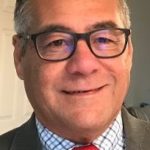 BIPOC children and adults often suffer discrimination and disparities when receiving services with poor outcomes affecting their health and social interactions. We will gain knowledge about different cultural perspectives, skills for culturally appropriate interactions, and greater self-awareness of your own cultural heritage. Moving from cultural competency to cultural humility starts with seeing how the brain hardware of culture is embedded in each one of us. Presenter’s Latinx experience will inform examples
BIPOC children and adults often suffer discrimination and disparities when receiving services with poor outcomes affecting their health and social interactions. We will gain knowledge about different cultural perspectives, skills for culturally appropriate interactions, and greater self-awareness of your own cultural heritage. Moving from cultural competency to cultural humility starts with seeing how the brain hardware of culture is embedded in each one of us. Presenter’s Latinx experience will inform examples
Dr. Carlos Mejia Rodriguez was born in Honduras and practiced there as a physician in the private and public sectors for 17 years. His focus is on children and families, indigenous groups, miners, farmworkers, and rural low-income neighborhoods. Since moving to the U.S. in 2002, Dr. Mejia Rodriguez has worked with Washington Association of Community and Migrants Health Centers, WA State Department of Health, Community Health Worker Coalition for Migrants and Refugees, Molina Healthcare and currently with Cascade Pacific Action Alliance/CHOICE Regional Health Network.
WORKSHOP #2
 Puberty can be difficult and challenging. We will review the basics of puberty for typical adolescents and talk about some of the challenges for tweens and teens with autism, Sensory Processing, anxiety, ADHD, etc.. We will also discuss tips and strategies to help you make their journey a little less stressful.
Puberty can be difficult and challenging. We will review the basics of puberty for typical adolescents and talk about some of the challenges for tweens and teens with autism, Sensory Processing, anxiety, ADHD, etc.. We will also discuss tips and strategies to help you make their journey a little less stressful.
Dena holds a Master’s Degree in Special Education, A Bachelor’s degree in Sociology, is a Washington State Certified Counselor and is Nationally Certified with PCIT international as a Parent-Child Interaction Therapist (PCIT). She has worked in various roles working with individuals and families such as; a Special Education Teacher, School and Special Education Administrator, School Counselor, Behavior Specialist, Advocate, Life and/or Career Skills Instructor, Family Therapist and Life Coach for over 25 years specializing in people with “invisible” disabilities and behavior challenges.
@ 2:30 - 3:30 pm
WORKSHOP #1
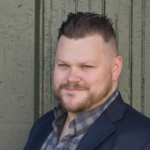
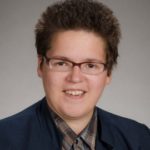 Come hear autistic voices speak their truth on why self-advocacy matters, how it is key to your work and life, and the process they followed to become a strong self-advocate.
Come hear autistic voices speak their truth on why self-advocacy matters, how it is key to your work and life, and the process they followed to become a strong self-advocate.
Tanner Calder is a life-long Lewis County resident living on the autism spectrum. He was diagnosed autistic in high school, missing opportunities to access early intervention services. He is active with the Southwest Washington Dance Center, works at Cascade Mental Health, and is a former Board member of the Lewis County Autism Coalition.
Ivanova Smith was born in Latvia where she spent the first 5 ½ years of life in an institution prior to immigrating to the United States. She is a person with Intellectual and Developmental Disabilities (I/DD), an activist and employment advocate for people with disabilities.
Ms. Smith frequently participates in various speaking engagements and presentations, including testimony to the state legislature. Ms. Smith is the State President of Self-Advocates in Leadership (SAIL), and a member and President of the Pierce County Chapter of People First of Washington. She lives in Tacoma, Washington with her family
WORKSHOP #2
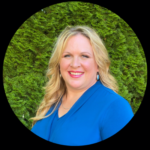 Universal Design for Learning’s framework can be adapted and used to promote learning in all learners in a classroom. Come learn ideas for implementing UDL into your classroom. Emphasis will be on HOW to plan with UDL. Participants will get the most benefit from this class if they have had a prior introduction into the theory of UDL (https://tinyurl.com/TheoryUDL)
Universal Design for Learning’s framework can be adapted and used to promote learning in all learners in a classroom. Come learn ideas for implementing UDL into your classroom. Emphasis will be on HOW to plan with UDL. Participants will get the most benefit from this class if they have had a prior introduction into the theory of UDL (https://tinyurl.com/TheoryUDL)
Kerri serves as regional Administrator of Early Learning and Special Education for ESD 113. She provides systemic, procedural, and instructional support with the emphasis on creating inclusive educational opportunities.
Kerri graduated Summa Cum Laude from Grand Canyon University with a dual major in Elementary and Special Education. Previously, she has worked in Special Education as an Education Specialist and a Resource Room teacher for the Centralia School District and as a Special Education Paraprofessional in Douglas, Wyoming.
@ 3:45pm - 4:15 pm
CLOSING REMARKS
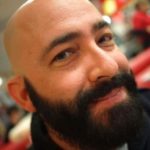 Join Jeremy as he connects conference themes and messages to inform a future roadmap, post-COVID 19. Moving forward, how do we (re)imagine disability? What can we do, individually and collectively, to make a positive difference? This is a Call to Action to join the movement for Vision 2030.
Join Jeremy as he connects conference themes and messages to inform a future roadmap, post-COVID 19. Moving forward, how do we (re)imagine disability? What can we do, individually and collectively, to make a positive difference? This is a Call to Action to join the movement for Vision 2030.
Jeremy Kaufman is a special education teacher who works with students between the ages of 18 and 21 years of age on social skills, job skills, and life skills for the Chehalis School District at the VISIONS program. He has spent most of his life between Washington State and California, and now resides in Olympia, Washington. He attended Evergreen State College in Olympia, Washington for his BA in Liberal Arts, and earned his MA and two special education teaching credentials at Claremont Graduate University in Claremont, California. Jeremy is also a person who experiences life on the autism spectrum. He enjoys advocating for people with special needs, teaching, playing and listening to music, cooking, learning about science and history, and spending time with friends and family.
PRE-RECORDED WORKSHOPS
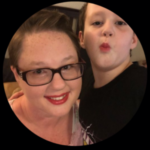 Come gain a comprehensive explanation of special education terminology. Learn the second language with abbreviations combining medical, law, education, and therapeutic services. Hear the “Top Ten” most important ones for each category.
Come gain a comprehensive explanation of special education terminology. Learn the second language with abbreviations combining medical, law, education, and therapeutic services. Hear the “Top Ten” most important ones for each category.
Audra Sisak is an autistic and epileptic self-advocate. She holds a Master’s of Science in Biomedical Sciences and Psychology. Her work started in clinical research, then took another turn when her son was also diagnosed with autism and epilepsy. She became a therapist and advocate for their community, along with working for non-profits such as Specialized Autism Support and Information (SASI) and Greater Pierce Special Needs PTA. She is the founder of an online support group called Washington State Autism Support for Parents and Adults (WASPA) and the founder/owner of Healthy Wings Therapy.
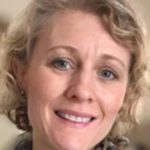 Helping youth transition from school to adulthood. Making the move from high school to what happens next can be confusing. This presentation provides an overview of special education rights and high-school transition process, with some information about COVID-19 impacts. This training is primarily for family caregivers and includes content relevant for professionals and student self-advocates.
Helping youth transition from school to adulthood. Making the move from high school to what happens next can be confusing. This presentation provides an overview of special education rights and high-school transition process, with some information about COVID-19 impacts. This training is primarily for family caregivers and includes content relevant for professionals and student self-advocates.
Jerri Clark is a Parent Resource Coordinator with Washington’s Parent Training and Information (PTI) center, which is managed by PAVE (Partnerships for Action, Voices for Empowerment). A resident of Vancouver, WA, since 1995, she started her career as a journalist and has taught yoga and dance. She is the founding director of Mothers of the Mentally Ill (MOMI), which advocates for improvements in mental healthcare.
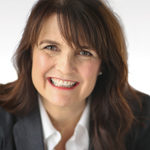
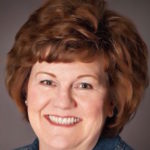 Come hear the story of an Oregon school district that adopted an inclusion mission to serve all children through general education. Learn the challenges they faced and what it took to achieve long-term success. West Linn-Wilsonville achieved significant transformation as a district to a full inclusion model that honors student strengths and promotes belonging.
Come hear the story of an Oregon school district that adopted an inclusion mission to serve all children through general education. Learn the challenges they faced and what it took to achieve long-term success. West Linn-Wilsonville achieved significant transformation as a district to a full inclusion model that honors student strengths and promotes belonging.
Dr. Jennifer Spencer-Iiams is the Assistant Superintendent for Student Services in the West Linn-Wilsonville School District in Oregon. She has been a teacher and educational leader for 32 years. Jennifer has served as an adjunct professor in the area of Special Education and in Emerging Bilingual Education. She is the child of educators and her mother was always active in improving her community.
Monica Meyer provides Technical Assistance and training to Residential and Supported Employment agencies supporting individuals with Classic Autism, specifically those who are non-verbal. Monica is an activist in the promotion of Autism Specific “Best-Practice, Evidence Based” Strategies that support communication, choice and independence.
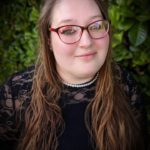 Learn the early signs of Autism, what to do when you recognize those signs, and how to advocate for yourself and your child on your path to confirming any formal diagnosis. Learn how early intervention and support can be a game-changer for families from a parent and professional with first-hand, real world, local experience. Experience actual home videos from before and after diagnosis, for illustrative and educational purposes.
Learn the early signs of Autism, what to do when you recognize those signs, and how to advocate for yourself and your child on your path to confirming any formal diagnosis. Learn how early intervention and support can be a game-changer for families from a parent and professional with first-hand, real world, local experience. Experience actual home videos from before and after diagnosis, for illustrative and educational purposes.
Born in Massachusetts and then living most of her life in Washington, Victoria is mother of two neurodiverse boys, 7 and 12 years old. Son Luis was diagnosed with autism at age 2. Victoria knows how to navigate the services system from her own struggles with it. While some days can be rough, most are filled with milestones, laughter and love. She serves as Link Coordinator for the Autism Coalition, helping others find resources so their journey is easier and full of their own success.
A culturally responsive system values diversity, understands differences and develops services and supports to meet the unique needs of each community. Come learn of resources and strategies for implementing culturally responsive services for Latinx students in your classroom and school district.
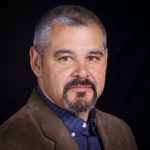 Presenters will include Vincent Perez, Morelia Ayala, Jair Arellano and Jefte Frias. Based in Olympia, Wa., The Equity Institute fosters structures by which students and families make policies that impact their day-to-day experience.
Presenters will include Vincent Perez, Morelia Ayala, Jair Arellano and Jefte Frias. Based in Olympia, Wa., The Equity Institute fosters structures by which students and families make policies that impact their day-to-day experience.